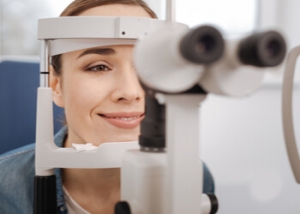Diabetic Retinopathy Treatment – Everything You Need To Know
Diabetes mellitus is a metabolic disease arising from a deficiency in the production or function of a hormone known as insulin. As insulin is responsible for the absorption of glucose from the bloodstream into the tissues of the body, problems with this hormone results in elevated blood glucose, which then damages blood vessels. Other organs and tissues reliant on receiving this blood supply also suffer, resulting in a myriad of diabetes-related complications, including:
- Diabetic retinopathy and other diabetic eye diseases
- Kidney disease
- Dental disease
- Nerve damage, also called neuropathy, typically in the legs and feet
- Reduced blood circulation to the legs and feet
- Increased risk of heart attack and stroke
While diabetes is present in the Australian population at a prevalence of around 5%, experts estimate a significant number of people are living with undiagnosed diabetes; it is thought that for every 4 diagnosed diabetics, there is 1 adult with undiagnosed disease. As the risk of experiencing diabetic retinopathy increases with longer duration of diabetes and poorer blood glucose control, it’s important to be aware of your risk factors for developing diabetes, such as obesity or a family history, and what can retinal surgery do to treat this condition, and to keep on top of your general health.
Diabetic Retinopathy
A retinopathy is any disease affecting the sensory tissue lining the back of the eyeball, known as the retina. The retina is responsible for receiving incoming light into the eye and sending neural signals onward to the brain to form vision. Because the cells of the retina are constantly working to process light into neural impulses, they are supported by a branching network of tiny blood vessels in order to meet this energy demand. Increased blood glucose levels from diabetes mellitus can damage these retinal blood vessels, resulting in diabetic retinopathy.
 Diabetic retinopathy is divided into two broad categories, proliferative and non-proliferative disease. Non-proliferative retinopathy can be further classed from minimal to severe. In the mild stages of non-proliferative retinopathy you may experience no symptoms and be entirely unaware of you have any ocular complications, however, an eyecare practitioner examining your retina may notice signs such as haemorrhages, yellowish deposits called exudate, areas of swelling, and white patches caused by restricted blood supply. If any of these signs occur close to the macula, the part of the retina responsible for central vision, you may be aware of a distortion or blur to your vision even if you only have mild retinopathy.
Diabetic retinopathy is divided into two broad categories, proliferative and non-proliferative disease. Non-proliferative retinopathy can be further classed from minimal to severe. In the mild stages of non-proliferative retinopathy you may experience no symptoms and be entirely unaware of you have any ocular complications, however, an eyecare practitioner examining your retina may notice signs such as haemorrhages, yellowish deposits called exudate, areas of swelling, and white patches caused by restricted blood supply. If any of these signs occur close to the macula, the part of the retina responsible for central vision, you may be aware of a distortion or blur to your vision even if you only have mild retinopathy.
Proliferative retinopathy is defined by the development of new blood vessels in the retina, which occur in response to compromised blood circulation from the diabetes. These new vessels are fragile and poorly formed, and are at risk of causing a large haemorrhage in the eye. Depending on the size and location of the bleed in the eye, your sight may be partially or fully obscured until the blood clears away. Although vision loss directly from a haemorrhage is temporary, the proliferation of these leaky new blood vessels can lead to other complications, including permanent scarring and distortion of the retinal layers, a retinal detachment, or glaucoma.
Diabetic retinopathy usually occurs in both eyes, though may be asymmetrical in its severity.
Diabetic Retinopathy Treatment
If you have mild to even moderate non-proliferative diabetic retinopathy, treatment is not always necessary and your eyes and vision can simply be monitored, particularly if you are asymptomatic. The early signs of diabetic eye disease can often be managed by improving blood glucose control, whether through diet and exercise or medications as directed by your endocrinologist or diabetes educator. Conversely, diabetic retinopathy treatment is always required for proliferative disease, usually in the form of retinal surgery.
Patients with either proliferative or non-proliferative retinopathy may experience swelling around the macula known as macular oedema. This is often readily noticeable and can interfere with your daily activities by causing blurred vision or even distortions to your sight such as objects appearing smaller than compared to the unaffected eye or altered colour vision. Macular oedema can be observed until it self-resolves under the care of an experienced eyecare clinician if the impact to your vision is low; alternatively, you may be recommended diabetic retinopathy treatment in the form of either a laser retinal surgery procedure or eye injections to help the eye to heal more quickly.
Photocoagulation is a type of laser retinal surgery used to seal damaged blood vessels that are leaking blood and fluid into the retina. The application of the laser to these affected vessels effectively seals the leak. Laser retinal surgery may also be used in the proliferative stage of the disease to reduce the oxygen demand of select areas of the retina, thereby removing the stimulus for the growth of those new fragile blood vessels. This procedure effectively burns and scars parts of the retina to achieve this and so is usually performed as far into the periphery of the retina as possible to avoid damaging your important central vision.
Macular oedema and proliferative retinopathy can also be managed using diabetic retinopathy treatment in the form of eye injections. A drug class known as anti-vascular endothelial growth factor (anti-VEGF) blocks the chemicals released by oxygen-deprived tissues that trigger new vessel growth.
Keeping your diabetes under good control is the ideal way to avoid needing diabetic retinopathy treatment. Patients with diabetes are recommended to maintain regular eye tests with their optometrist or ophthalmologist, even if they haven’t noticed any changes to their vision. Call us today at (03) 9070 3580.






Leave a Reply
Want to join the discussion?Feel free to contribute!